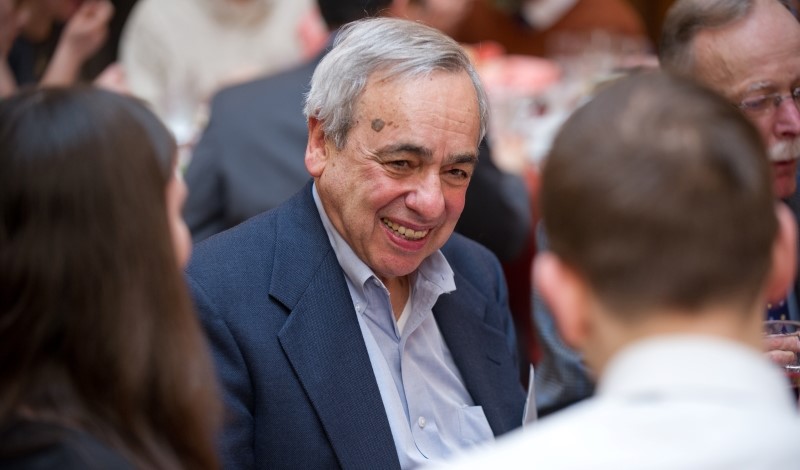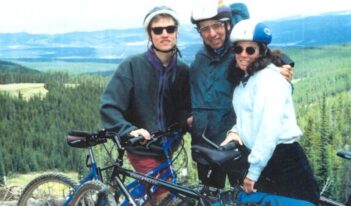
In remarks delivered at a Wharton commemoration, a now-late Nobel laureate praises Howard Kunreuther’s pioneering work.
I first met Howard Kunreuther in 1972. Amos Tversky and I were visiting the Oregon Research Institute, as guests of Paul Slovic. The gathering that Paul had assembled was quite a collection of minds. His Oregon colleagues—psychologists Paul Hoffman, Lew Goldberg, and Robyn Dawes—were joined by other excellent speakers, Howard among them.
Howard was already interested in the topic that became the main theme of his career: How do people respond, both ex ante and ex post, to low-probability events with large consequences? This tied in, of course, with insurance. But in psychology, the connection was with the notion of an availability heuristic. Although I can’t remember if we discussed this at the time, Howard was almost certainly the first economist I met with an interest in “unreasonable” behavior. (I dislike the term “irrational.”) And he was the first I knew who expressed a willingness to use psychology to explain this behavior as well as use this knowledge to serve as the basis for policy.
Come to think of it, Howard was the first behavioral economist in the modern mold, interested as he was in the effects of characteristic mistakes on human decision-making. Of course, the giant Herbert Simon had been there with the concept of bounded rationality. But there is a special flavor in the study of specific biases and how they affect decision-making.
Over the course of his long career, Howard became an expert in all aspects of insurance protection against the effects of disasters. Motivated by an interest in the behavioral factors that influence providers and consumers of insurance, and the implications for the regulation of insurance, his interest was in the use of insurance as an instrument of behavioral change. For example, to promote a particular protective action, a good way of doing is to make insurance coverage contingent on that action.
One of Howard’s many influential prescriptive papers, “Mitigating Disaster Losses Through Insurance,” has 345 citations in Web of Science. The abstract is worth quoting, as it illustrates Howard’s comprehensive view of risk-related problems:
This article first examines why homeowners have not voluntarily adopted cost-effective protective measures and have limited interest in purchasing insurance. It then proposes a disaster-management program which utilizes insurance coupled with well-enforced building codes to reduce future damage. Banks and financial institutions play a key role.
Characteristically, Howard spans in this one paper alone issues such as individuals’ failure to board-up homes before a hurricane, the understaffed government offices that enforce building codes, and the problems of reinsurance for mega disasters. His approach was, as in his other work, comprehensive and consistently practical and sensible.
Howard was a prolific collaborator, and indeed most of his papers were co-authored. One of his most productive collaborations was with Paul Slovic. An early paper of theirs, published in 1978 in the American Economic Review, was on “Economics, Psychology and Protective Behavior.” It was based on Simon and concluded that “because rationality is ‘bounded,’ utility theory is not a trustworthy guide for policy.”
By 2017, their collaboration had progressed to yield a paper entitled, “How Can We Improve Decision Making in the Face of Catastrophic Risk?” Recognizing the inherent myopia in intuitive thinking, they discussed sophisticated ways of structuring risk-related decisions to provide immediate benefits. One example was to link multi-year disaster insurance with loans that cover risk mitigation: Homeowners could be encouraged to take out loans to make costly risk mitigation upgrades—so their houses would be more resistant to flood or fire risks—when the annual reduction in their insurance premiums under a multi-year contract would be greater than the yearly costs of repaying their home improvement loans.
Howard’s research produced many lovely ideas and findings, in multiple collaborations with many others. In a paper with Eric Johnson, Jack Hershey, and Jacqueline Meszaros, he reported that people are insensitive to the scope of insurance, whether the underlying risks stemmed from terrorism or accidents. They also found that people like rebates so much that they are willing, in effect, to lend their insurance company the rebated money up front at no interest. With Christopher Hsee from the University of Chicago, Howard found that people pay more to insure an object to which they are attached. Insurance, in other words, is a form of consolation, they argued.
In a range of other work, Howard linked biases to the behavior of both providers and consumers of insurance. His book, The Ostrich Paradox, co-authored with Robert Meyer, focused on six biases and suggests clever ways to defeat them. For example, excessive optimism can be overcome by presenting low probabilities using familiar examples, such as snowy roads. To remind people to renew their insurance, he proposed that insurance companies send their customers a chit for a restaurant meal to celebrate a year in which they had no losses to claim.
Howard, as a scholar, was cognizant of people’s limitations. And just as much as he was analytical, he was practical too. In his research, he was always thinking about action and about other people. And that, overall, describes Howard as a person as well.
This essay draws on remarks the author delivered at a Wharton School commemoration of Howard Kunreuther’s legacy held on November 28, 2023. The author passed away four months later but not before granting permission to publish this essay.
This essay is part of a series celebrating the life and scholarship of Howard Kunreuther, titled “Commemorating Howard Kunreuther.”




